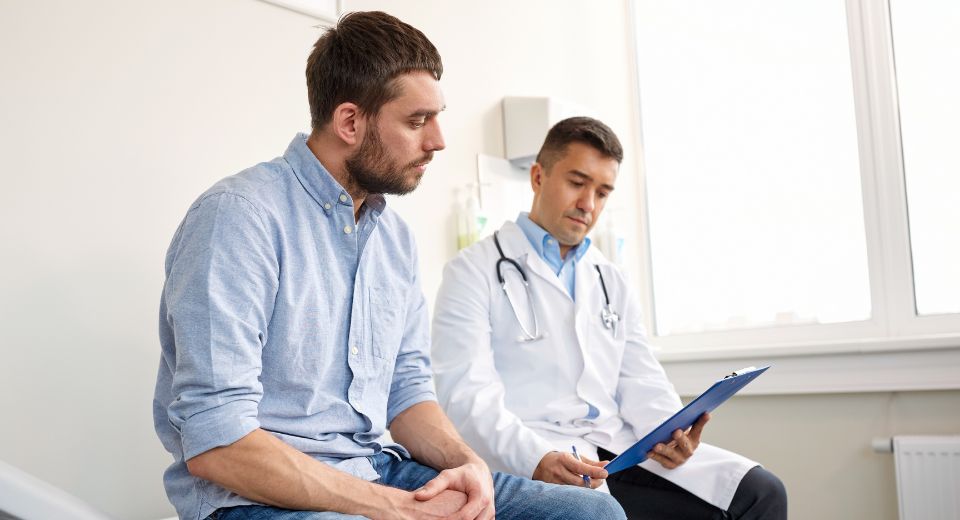
Author: Mark Wade, MD
September is National Prostate Cancer Awareness Month.
Prostate cancer is the second most common form of cancer in American men after skin cancer. It affects 1 in 8 men in the United States. Researchers do not know exactly what causes prostate cancer. But they have found some risk factors and are trying to learn just how these factors might cause prostate cells to become cancer cells. It’s much more common in African-American men and affects 1 in 6. The risk of prostate cancer increases as you age – 6 out of 10 cases are found in men over the age of 65. If you have a family history of prostate cancer, this increases the risk of you having the disease. The risk of a man developing prostate cancer is higher than developing colon, kidney, melanoma, and stomach cancer combined.
This month raises awareness of this deadly condition. It educates men about the risks involved and urges them to seek proper treatment in time. Raising awareness and educating people can help to look after their health and live a long, meaningful life.
According to the CDC, screening may find cancer that is likely to spread to other places in the body, so it can be treated before it spreads. This may lower the chance of death from prostate cancer in some men. Most prostate cancer is slow growing and doesn’t cause any health problems. The only way to know if an abnormal test is due to cancer is to do a biopsy. A biopsy is when a small piece of tissue is removed from the prostate and looked at under a microscope to check for cancer. A prostate biopsy can cause pain, blood in the semen, and infection.
The most common treatments for localized (early-stage) prostate cancer are surgery to remove the prostate, radiation therapy, and active surveillance (getting tested regularly, and treating the cancer only if it grows or causes symptoms). Side effects from radiation therapy or surgery may include:
- Impotence
- Loss of bladder control
- Bowel problems
If you are thinking about being screened, you and your doctor should talk and consider:
- If you have an increased risk of getting prostate cancer
- If you have any health problems that may make it harder for you to be treated for prostate cancer if it is found, or that may make you less likely to benefit from screening.
- How you feel about the possible benefits and harms of screening, diagnosis, and treatment
The information provided is for general interest only and should not be misconstrued as a diagnosis, prognosis or treatment recommendation. This information does not in any way constitute the practice of medicine, or any other health care profession. Readers are directed to consult their health care provider regarding their specific health situation. Marque Medical is not liable for any action taken by a reader based upon this information.

